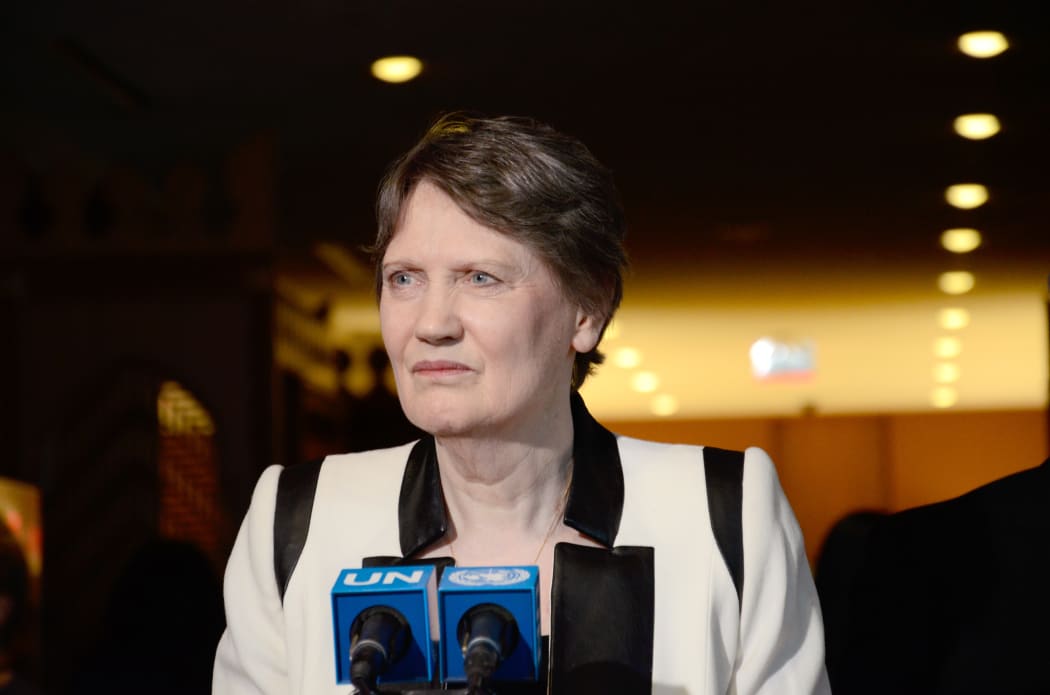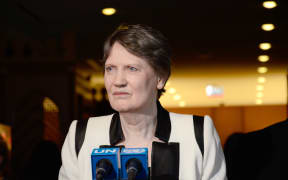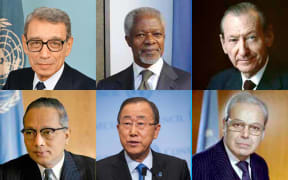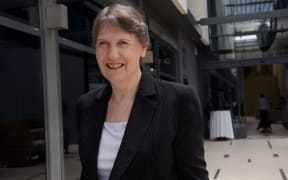Helen Clark finished seventh out of nine candidates in the latest United Nations straw poll as the race to succeed Ban ki-Moon as UN Secretary-General heats up.

In previous ballots Helen Clark has finished seventh or eighth. Photo: AFP
The 15-member Security Council cast a ballot for each of the remaining nine candidates with the choices of: encourage, discourage or no opinion
The former New Zealand prime minister had six votes in her favour, nine discourage votes and no 'no opinion' votes.
Former Portuguese prime minister António Guterres remains in first place with 12 votes, and former Serbian foreign ministrer Vuk Jeremić moved up to second place with eight votes.
Miss Clark's placing is similar to previous rounds, where she has finished seventh or eighth, but this time she received more 'discourage' votes.
WFUNA presents the results of 5th #NextSG Straw Poll.
— WFUNA (@WFUNA) September 26, 2016
Next #SGStrawPoll on Oct 5th, and will use color-coded system. pic.twitter.com/OunVtU3Sef
The poll is aimed at giving candidates an idea of how much support they have from Security Council members.
Prime Minister John Key said Miss Clark will be a "bit disappointed" but the result did not change anything.
The vote on 5 October in which the five permanent members can indicate who they would veto will be more important.
"At that point we'll get a sense of what vetos they apply potentially not just to Helen Clark but to other candidates. If they start taking out some of the front-runners that gives her a gap to come through."
Before today's result, Miss Clark said the ballots had been very volatile, with some people remaining steady, while others moved around a lot.
She said the real games would begin in the first week of October, but she was not expecting to receive a veto vote, because she said New Zealand was viewed as an independent and fair-minded country.
The Security Council will hold secret ballots until a consensus is reached on a candidate to replace Ban Ki-moon who steps down at the end of 2016 after serving two five-year terms.
Russian UN Ambassador Vitaly Churkin said at the next ballot, on 5 October, ballots cast by the five veto powers - the United States, France, Britain, China and Russia - would be a different color from the votes of the remaining 10 council members, though they remain anonymous.
This allowed candidates to see if they could be facing a veto, he said.
- RNZ / Reuters




